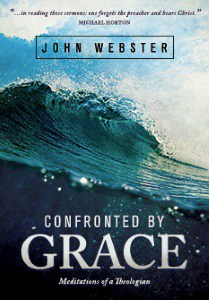
Oh come, let us sing to the Lord;
let us make a joyful noise to the rock of our salvation!
Let us come into his presence with thanksgiving;
let us make a joyful noise to him with songs of praise!
For the Lord is a great God,
a great King above all gods.
In his hand are the depths of the earth;
heights of the mountains are his also.
The sea is his, for he made it,
his hands formed the dry land.Psalm 95:1?5
Psalm 95 is an invitation to worship. But the worship to which it invites us is not private but public. The psalm is addressed to the people of God in their common life, and the worship to which it summons us is worship in assembly: Let us sing; let us rejoice; ?let us worship and bow down; let us kneel before the Lord, our Maker!? (95:6). The worship of God is principally a public activity; it is an action in community. Why? Because I do not worship my God, but our God; God is my God only insofar as he is the God of God?s people. It is this principle, of course, which informs something close to the heart of the Anglican tradition, namely the importance of ?common prayer.? The core of that tradition is what Thomas Cranmer in his invitation to morning prayer called ?assembling and meeting together.? What builds up our common life as the people of God is public obedience to the summons of the psalm: Come, let us sing to the Lord.
To say this is not to deny that worship is also a private and individual matter. Every person has business to do with God, and no one else can do that business for us. Without roots in private prayer and seeking God?s face, without pondering Holy Scripture and examining ourselves, the life of faith is simply a shell. Indeed, however much we may value public worship, we can use it to hide from God. Nevertheless, the accumulated wisdom of the Christian tradition is this: Assembling and meeting together is basic to the rhythm of the life of faith. It is not an option, something which we can drop in and out of as the fancy takes us. It is what God requires, and it is what builds us up. Our culture very easily relegates religion to solitude; it tempts us to replace worship by spirituality, and to think that the life of faith is just self-cultivation, growing a more interesting me. And to that we Christian folk must politely and firmly say, quite simply, no. God is honored by obedience to his command; and his command is that?however unappealing it may be?we must give ourselves to the public praises of his people.
Now, how are we to set about this task of worshiping God? Two things.
First, worship involves a movement in a very definite direction. ?Oh come? (95:1)?we are invited; and ?Let us come? (95:2)?we enter into worship by making a movement. Worship involves us in turning from one set of preoccupations, from one sphere of activity and responsibility, and directing ourselves toward another sphere. We are to turn in the direction of the presence of God himself. We are to direct ourselves toward him, to turn and place ourselves before the face of God. We do not make this move unaided?indeed, we cannot; but by the empowering of God himself, we are enabled to bend our lives toward the sheer reality of God. The Hebrew word in the psalm here conveys a measure of haste and urgency: This coming to God is not a gentle stroll; it has the speed and application of those attending to the most serious and pressing business. As we do that?as we turn to God with energy and deliberateness and exclude all distractions?we are not, of course, saying that all other concerns are of no value. The primacy of worship does not consign everything else to the rubbish heap. We are not forced to choose between ?worship? and ?life.? But we do have to see that unless we make this move in this direction we will have no grasp at all of what to do in all the other movements of our lives. Unless we turn to God, unless that fundamental movement is a regular and steady part of our lives, then the rest of what we do will be a jumble of activities without coherence and without orientation.
Worship involves an urgent turning to God. Second, worship involves a measure of intensity. ?Let us make a joyful noise to the rock of our salvation!? let us make a joyful noise to him with songs of praise!? (95:1?2). If the psalm does reflect the kind of worship which took place in the temple, then it?s obviously got something pretty exuberant in mind: a cheerfully noisy and undignified procession of voices and instruments heading for the courts of the Lord in Jerusalem. Lots of Christian congregations have rediscovered this kind of exhilaration, of course, and worship with an exuberance which makes some of us look pretty staid. But exuberance is only one kind of intensity. There is also an intensity which is quiet and restrained and undemonstrative but which is no less caught up in the movement of worship. What?s crucial is that worship should arise from and give voice to deep joy in God. The roots of worship are love for and delight in God and the ways of God. Exhilaration there may be; but what matters above all is focus, a fixing of heart and mind on the face of God. ?What is it to rejoice aright?? asks St. Augustine; and his answer is: ?To rejoice in the Lord.? If we sing, we are to sing to the Lord; we are to come into his presence; we are to make a joyful noise to him.
With this we reach the heart of what?s being set before us in these first verses of the psalm, which is, very simply, God himself. What draws forth the movement of worship? God himself. And what evokes the intensity of worship? Again: God himself.
* * *
Adapted from John Webster?s Confronted by Grace: Meditations of a Theologian.





